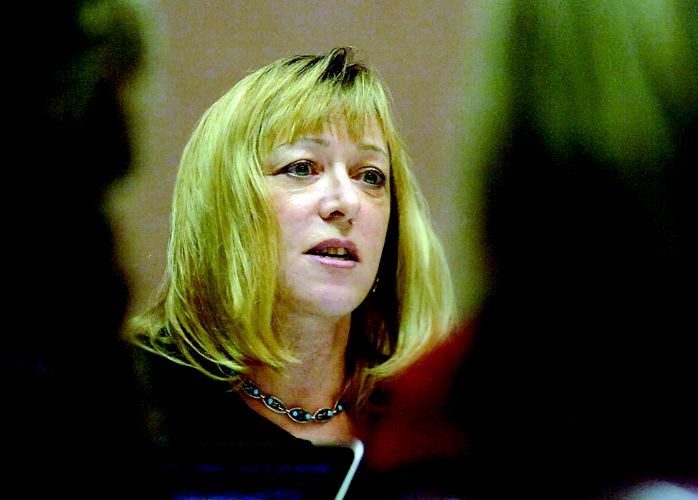The prospect of having local issues displayed on a national stage is exciting, but also a little intimidating. said a local anti-pipeline activist.
Sonja Ostertag, spokesperson for the Sea to Sands Conservation Alliance, was one of a small group of Prince George residents who met with a pack of influential women examining the Northern Gateway project and speaking to women and First Nations groups in affected communities.
Nobel Peace Prize winner Jody Williams and a group of five other delegates - including Canadian musician and environmental activist Sarah Harmer - from the Nobel Women's Initiative stopped in town for the meeting Thursday morning as part of a nine-day tour that began Monday in Fort McMurray.
"I think it's incredible that our voices from Prince George are being magnified and amplified and brought to a provincial and national scene," Ostertag said.
The delegates will hold a press conference on Oct. 16 in Vancouver to wrap up their journey and discuss their findings.
"I think the most powerful thing to me is women saying over and over and in different places that women have to stand up and take the lead in making the world a better place for everyone," Willams said.
Williams, who won the prestigious award in 1997 for her work to help ban land mines, said the Nobel Prize is a great tool for helping to give others a platform.
"When I stand with them, people are a little more inclined to listen. So by being there and giving them the floor, I'm sharing [the prize]," said Williams, who still counts herself as a grassroots activist. "That about all it's worth to me."
Williams was one of six female Nobel Peace Prize winners who created the Nobel Women's Initiative in 2006 to spotlight the work women do to support peace in their communities.
"It's truly amazing to watch people understand that worrying about an issue and hoping somebody else makes it better is not a strategy," she said. "If you really want to change things for the betterment of everybody, you've got to get up off your ass and work with other people to make it different."
The meetings with the delegates on this Northern Gateway tour are a more intimate opportunity to share concerns on a personal level, said Ostertag.
"It's really a chance to speak to the personal challenges that the Enbridge project has brought to me and to our community, but also a chance to look at the strength of the resistance to the project," said the PhD student at UNBC.
Fellow attendee Karen Anderson said the ability to learn more about each other as individuals and to her that concerns are the same in other communities is also valuable.
"I think we tend to feel a little isolated in our various challenges and it's good to know that really we're like everybody else, everybody's like us and we care about matters to everybody," Anderson said.
The fact the tour focuses on women brings wisdom and strength to the conversation, said tour delegate Marianne Douglas.
Douglas is a climate scientist from the University of Alberta, who said she was surprised by an "out of the blue" phone call to become a part of this week's tour.
"Women are really the centre of many families, and so even though it's a woman's voice, it's still peoples' voices, it's still families' voices," she said.
Douglas, whose work focused on the high Arctic for nearly 25 years, was eager to help shine light on an issue and a constituency that is going unheard.
"One of the things that's always challenging is how do you get the message out?" Douglas said, relating the stories she has heard so far to archival footage she's seen from the Thomas Berger-led Mackenzie Pipeline Inquiry of the mid-1970s.
"And now we're hearing stories where people - where another big project is taking place - are being impacted, yet it seems as though their concerns and ways of life re not being paid attention to," she said. "And we should know better. If this was happening in our backyards, in southern parts of Canada or other parts of the world, we would hear a lot more opposition, I'm sure."



